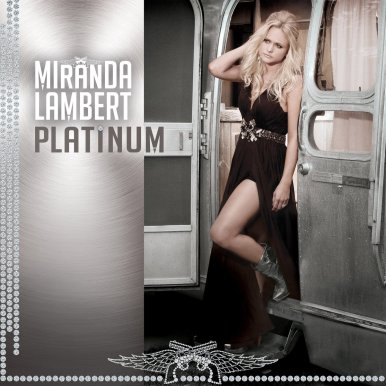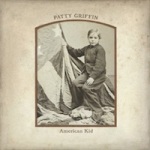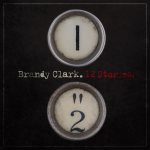 The Lancaster Fair, located on a flat grassy fairground in rural New Hampshire, has been carrying on a Labor Day weekend tradition since 1870. In recent years, the featured entertainment has been legacy country acts including Jo Dee Messina, Sawyer Brown and Pam Tillis & Lorrie Morgan. In fact, it was through Tillis herself I found out the fair even existed at all.
The Lancaster Fair, located on a flat grassy fairground in rural New Hampshire, has been carrying on a Labor Day weekend tradition since 1870. In recent years, the featured entertainment has been legacy country acts including Jo Dee Messina, Sawyer Brown and Pam Tillis & Lorrie Morgan. In fact, it was through Tillis herself I found out the fair even existed at all.
The act this year, who plays a free concert at the bandstand with admission to the fair, was Tanya Tucker. Having never seen her live before, I jumped at the opportunity to add her name to my ever-growing concert resume. As I suspected she dazzled the crowd and didn’t skip a beat as she ran through a nice cross-selection of her vast catalog.
What struck me the most, was her vitality. I had very wrongfully conjured up the perception in my mind that Tucker was on her last legs as a performer without much of a singing voice anymore. I’m thrilled to report she couldn’t have looked or sounded more like herself.
Her band opened the performance with a faithful rendition of Vince Gill’s “One More Last Chance” before Tucker graced the stage in a black western button-down, black pants, and a rhinestone-studded belt. She began with “Some Kind of Trouble” and kept the setlist tied to her work from the 1980s and 1990s, running through most of the hits from her well-deserved and celebrated comeback.
The majority of her set was accentuated by her up-tempo material with the gorgeous twangy guitars that always set her apart from the pack. She flubbed, and quickly recovered from forgetting the opening line of “Hangin’ In,” and turned in stellar renditions of “If Your Heart Ain’t Busy Tonight” and “Walking Shoes.”
She referenced 1997’s Complicated, the final album of her commercial peak, to introduce a surprise performance of “Little Things,” her most recent top ten single. It comes off a bit slicker and more pop-leaning than her earlier hits, especially mixed in the company of the earlier hits she performed, but it’s still classic Tucker and remains one of my favorites of hers.
Another favorite of mine, and one of hers too thankfully, is “Strong Enough To Bend,” which was dosed with gorgeous mandolin licks throughout. “Love Me Like You Used To” was equally as wonderful. The biggest surprise was the non-single “Can’t Run From Yourself,” the title track from her 1992 album, and a song she said she’s always liked. Her passion for the track was on fully display and her performance was feisty and incredible.
Mid-way through, she dipped her toes back into the 1970s, beginning with the creepy “What’s Your Mama’s Name” and continuing through “Lizzie and the Rainman” and “San Antonio Stroll.” “Texas (When I Die)” was another highlight, and the perfect excuse for a sing-a-long by the end.
Another detour found Tucker covering a few hits from her favorite artists. She began with a joyous and faithful reading of the Eagles “Peaceful Easy Feeling” before jumping into a unique medley of Bruce Springsteen’s “I’m On Fire” mixed with Johnny Cash’s “Ring of Fire.” Despite the obvious differences between the two songs, Tucker and the band found a way to blend them together perfectly and with ease. She concluded with Merle Haggard’s “Ramblin’ Fever,” which she recorded on her most recent album, the country standards covers record My Turn in 2009. Tucker’s performance was a revelation, and for me, one of the top highlights of the whole night.
Returning to her hits, Tucker somewhat stumbled through “It’s A Little Too Late,” inadvertently switching the first and second verses. Her performance was excellent though, and even included a nice bit of line dancing during the instrumental breakdown. She dedicated “Two Sparrows In A Hurricane” to her parents.
 While Tucker doesn’t move on stage like she used to thirty years ago, she did inject her signature personality into the performance. I would say she did a lot of folding her arms and posing at the ends and between songs, but she never once stood still. At one point she even said she’d like to do a Harley trip in the area sometime during the autumn months some year, this after seeing the biggest cow she had ever seen, in the area that day, or possibly even at the fair itself.
While Tucker doesn’t move on stage like she used to thirty years ago, she did inject her signature personality into the performance. I would say she did a lot of folding her arms and posing at the ends and between songs, but she never once stood still. At one point she even said she’d like to do a Harley trip in the area sometime during the autumn months some year, this after seeing the biggest cow she had ever seen, in the area that day, or possibly even at the fair itself.
If I could find any fault with the show at all, it came as Tucker began an impromptu and long intermission where she signed autographs from the stage for what felt like an eternity. Concertgoers were rushing to the front of the stage in droves for autographs and selfies, much to the disdain of everyone else, like myself, who would’ve rather seen the time filled with more music (such as “If It Don’t Come Easy,” “(Without You) What Do I Do with Me” and “Soon”).
One concertgoer had her sign their copy of her autobiography Nickel Dreams, which had her proclaim the book might’ve been billed as a tell-all but “a lot of people would have to die” before she could really “tell all.” Tucker joked she’ll have to write a sequel (none is currently in the works) and at this point, call it “Quarter Dreams.” She was sharp as a tack, even as people began filling out to get to their cars before a mad rush. Tucker did redeem herself, closing the show with a beautiful medley of “Amazing Grace” and “Delta Dawn,” the latter of which had the audience singing the final chorus back to her.
The crowd was mixed with people ranging from both young to older, with many young boys (5-7 years old) who were moving, grooving, and clearly had music in their souls. It was heartwarming to see young people exposed to authentic and traditional honky-tonk country music, which the seemed to be enjoying.
I also sincerely appreciated the lack of alcohol at the show. People may have had their share of soda, and other drinks, but there wasn’t any beer and the ruckus it causes. It truly was a refreshing thing not to have that added aggravation to potentially put a damper on the night.
I had never been to the Lancaster Fair before, despite having a ski condo in the area for the past 24+ years. I only went for Tucker and she was incredible. I’ve been to many unique and special concerts through the years, and this one was right up there with the best I’ve seen.
I hope this goes without saying, but if Tucker comes to your area, make it your duty as a country music fan to attend the show. She’s still got every bit the swagger she had all those years ago. You will most certainly not be disappointed.


















